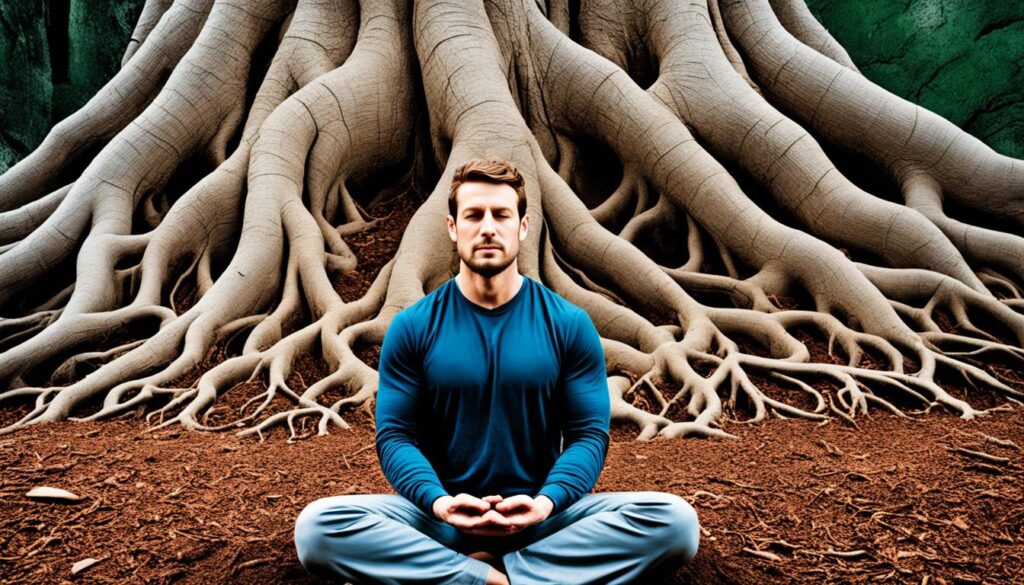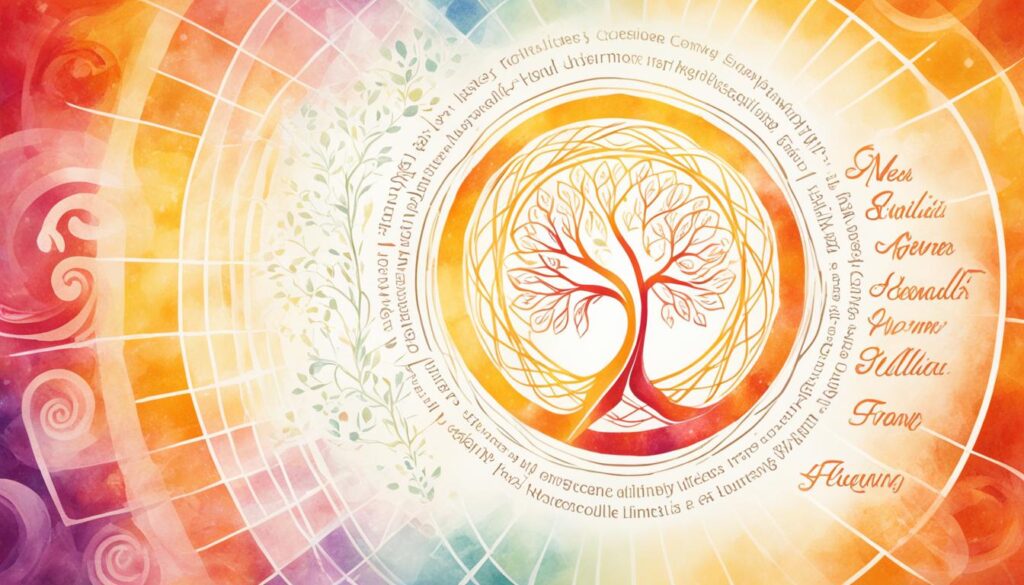As I sit here, reflecting on my own journey towards better health, I’m reminded of the profound impact that holistic healing has had on my life. For years, I struggled with chronic pain and emotional imbalances, searching for answers in the traditional healthcare system. But it wasn’t until I discovered the power of integrating mind, body, and spirit that I truly began to experience the profound transformation that holistic healing can bring.
Holistic healing is not just about addressing the physical symptoms of a health concern; it’s about uncovering the root causes and addressing them with a comprehensive approach. By recognizing the interconnectedness of our mental, emotional, and spiritual well-being, we can unlock the keys to whole-body wellness and cultivate a deeper sense of balance and harmony within ourselves.
In this article, we’ll explore the world of holistic healing, delving into the powerful benefits of integrating traditional and alternative therapies, the importance of the mind-body connection, and the transformative power of self-care and mindfulness practices. Whether you’re seeking relief from a chronic condition, striving to improve your overall well-being, or simply yearning for a deeper connection with yourself, the insights and strategies we’ll share can serve as a guiding light on your journey towards whole-body wellness.
Key Takeaways
- Holistic healing emphasizes the interconnectedness of mind, body, and spirit for optimal health and well-being.
- Integrating traditional and alternative therapies can address the root causes of health concerns and promote whole-body wellness.
- The mind-body connection plays a crucial role in influencing our physical, emotional, and spiritual well-being.
- Self-care practices, such as mindfulness techniques, can empower individuals to take an active role in their healing journey.
- Embracing a holistic approach can lead to enhanced physical, emotional, and spiritual well-being.
Holistic Healing: A Comprehensive Approach to Well-being
At the core of the holistic healing philosophy lies the profound understanding of the mind-body connection. This interrelationship between the physical, mental, and emotional aspects of an individual plays a pivotal role in shaping overall health and well-being. By acknowledging this interconnectedness, holistic practitioners aim to address the root causes of health concerns, rather than simply managing symptoms.
Understanding the Mind-Body Connection
The holistic approach recognizes that our thoughts, emotions, and spiritual well-being can profoundly influence our physical state. Stress, anxiety, and negative thought patterns can manifest in the body, leading to various health issues. Conversely, physical ailments can also impact our mental and emotional well-being. By addressing the whole person, holistic healing seeks to restore balance and harmony, empowering individuals to take an active role in their own healing journey.
Integrating Traditional and Alternative Therapies
Holistic healing embraces the integration of traditional medical treatments with complementary and alternative therapies. This comprehensive approach allows practitioners to create personalized treatment plans that address the unique needs of each individual. Techniques such as acupuncture, herbal remedies, and energy healing are often incorporated alongside conventional medical interventions, providing a well-rounded and effective path to wellness.
Promoting Self-Care and Mindfulness
Central to the holistic healing philosophy is the emphasis on self-care and mindfulness practices. By cultivating a mindful and self-aware state, individuals can better connect with their body’s innate wisdom and respond to its needs. Practices like meditation, breathwork, and yoga not only promote relaxation and stress reduction but also foster a deeper understanding of one’s emotional, mental, and spiritual well-being.

Exploring Holistic Healing Modalities
As we delve into the world of holistic healing, we uncover a vast array of modalities that work in harmony to address the mind, body, and spirit. From energy healing techniques to herbal and natural remedies, and mindfulness practices, these holistic approaches offer a comprehensive path to well-being.
Energy Healing Techniques
Explore the transformative power of energy healing techniques, such as reiki, chakra balancing, and crystal therapy. These practices work to address imbalances and promote the body’s natural healing abilities, harnessing the inherent spiritual wellness within us all.
Herbal and Natural Remedies
Delve into the rich traditions of herbal medicine and natural remedies, including the time-honored practices of Traditional Chinese Medicine and Ayurvedic healing. Discover how these alternative therapies can support overall health and well-being, complementing conventional holistic nutrition approaches.
Mindfulness Practices
Cultivate a state of inner calm, self-awareness, and emotional balance through the power of mindfulness practices. Explore the transformative benefits of meditation, breathwork, and yoga, which can help foster a deeper connection with the mind-body connection and promote holistic healing.

| Holistic Healing Modality | Benefits | Key Principles |
|---|---|---|
| Energy Healing | Addresses imbalances, promotes natural healing, enhances spiritual wellness | Harnesses the body’s subtle energies, aligns chakras, utilizes techniques like reiki and crystal therapy |
| Herbal and Natural Remedies | Supports overall health and well-being, complements conventional approaches, draws from traditional practices | Utilizes plant-based medicines, incorporates principles of Traditional Chinese Medicine and Ayurveda |
| Mindfulness Practices | Cultivates inner calm, self-awareness, and emotional balance, fosters mind-body connection | Includes meditation, breathwork, and yoga to promote holistic healing and well-being |
Conclusion
As we conclude our exploration of the holistic healing approach, it becomes evident that addressing the whole-body wellness is essential for achieving optimal health and well-being. The mind-body connection is a fundamental principle that underpins the holistic healing philosophy, recognizing the intricate relationship between our physical, mental, emotional, and spiritual aspects. By integrating traditional and alternative therapies, individuals can embark on a comprehensive journey towards integrative health, harnessing the power of both conventional and complementary modalities.
The significance of self-care practices and mindfulness cannot be overstated, as they empower individuals to take an active role in their own healing process. Through techniques such as meditation, breathwork, and yoga, we can cultivate a state of inner calm, self-awareness, and emotional balance, which are vital for navigating the complexities of modern life and fostering whole-body wellness.
As you embrace the holistic healing approach, we encourage you to explore the diverse range of natural therapies and complementary medicine available, from energy healing techniques to herbal remedies and beyond. By integrating these modalities into your life, you will embark on a transformative journey towards holistic healing, unlocking the body’s innate ability to heal, restore balance, and achieve optimal well-being. Embark on this path and experience the profound benefits of whole-body wellness.
